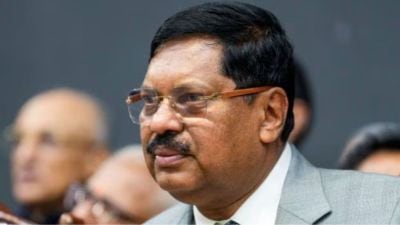Sonia calls for inclusion of disabled in Census 2001
NEW DELHI, APRIL 17: As the demand for the inclusion of a 'disability' count in the 2001 National Census gains momentum, one more voice ha...

NEW DELHI, APRIL 17: As the demand for the inclusion of a ‘disability’ count in the 2001 National Census gains momentum, one more voice has joined the chorus: that of Congress president Sonia Gandhi.
Taking up the cause of the disabled, Gandhi has written to Home Minister L K Advani with the plea that the Census should include a head count and classification of disabled persons in the country.
"As you are aware, there is no accurate data available in the country regarding the number of disabled persons and the types of disability. Programmes for rehabilitation of disabled persons suffer seriously due to the lack of this data-base," Gandhi said in her letter.
But while one Gandhi was making a fervent plea for the separate enumeration in the Census of the mentally and physically challenged, another Gandhi was justifying in Parliament why specific data on the disabled cannot be gathered in the forthcoming Census.
In an written reply in the Rajya Sabha, Union Minister for Social Justice and Empowerment Maneka Gandhi said the 2001 Census was not being asked to conduct the head count due to "technical difficulties in collecting accurate disability data in the 1981 Census".
The 1981 national census had included a separate set of questions about persons with disabilities, but the feedback from the enumerators, mainly school teachers and government servants who had conducted the house-to-house exercise, was negative.
The Census officials reported that people were reluctant to divulge information about physically or mentally challenged persons in the household, and often such questions met with hostility directed against the hapless enumerator.
"We are concerned that the entire Census exercise, which is a decennial exercise, may be jeopardised if people turn hostile," Maneka Gandhi told journalists last week.
The Registrar General and Census Commissioner of India, J Banthia agrees that the Census is not the right medium for collecting reliable data on disability. This was one of the reasons why the enumeration of the disabled was discontinued.
Secondly, there was a tendency to under-report disabilities. With enumerators not trained to spot disabilities or levels of disability, even the data collected was found to be a severe underestimation. For example, the Organisations of the Disabled had criticised the figures obtained in the 1981 Census, saying it was incorrect and did not reflect the true picture.
Maneka Gandhi told the Rajya Sabha that her Ministry had taken up the question of collecting disability data with the Census authorities, and had even offered to provide training to enumerators to sensitise them to the requirements of the job.
After the Home Ministry took the view that the Census was not the right agency to collect disability data, the National Sample Survey Organisation (NSSO) under the Department of Statistics has been asked to carry out a comprehensive sample survey to collect the data.
An NSSO sample survey held in 1991 on visual, hearing, speech and locomotor disabilities had estimated that about 1.9 per cent of the population of the country suffered from disabilities. But this figure is widely believed to be a gross underestimation, with the real figure estimated to be around 5 per cent.
Meanwhile, disabled persons in the country plan to launch a nation-wide agitation from Tuesday to protest against the government’s reluctance to include them as a separate category in the upcoming Census 2001.
Photos


- 01
- 02
- 03
- 04
- 05





























